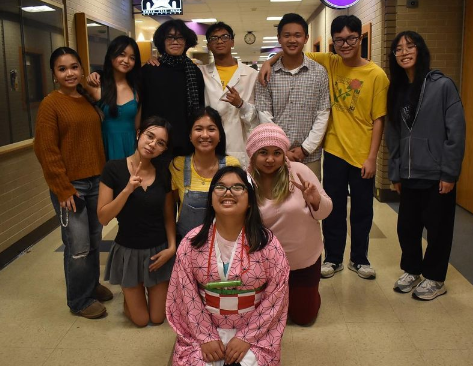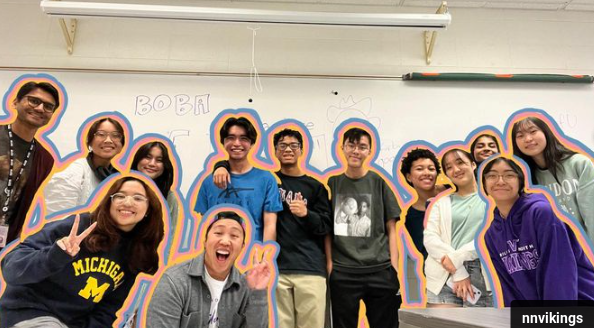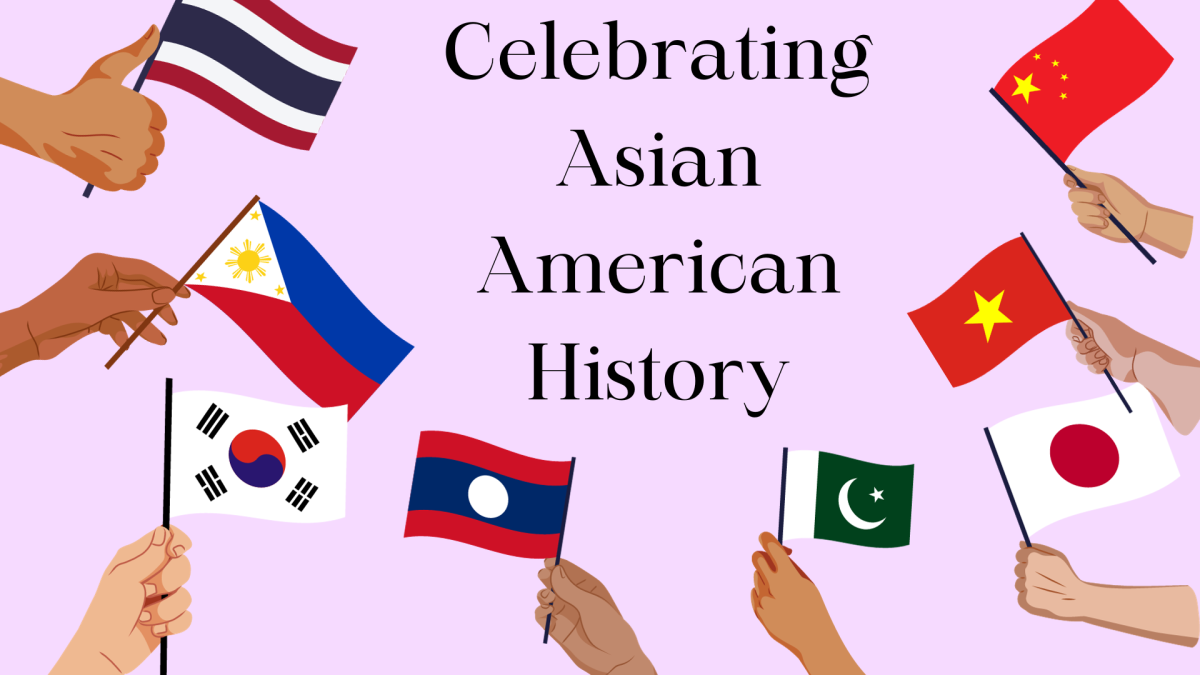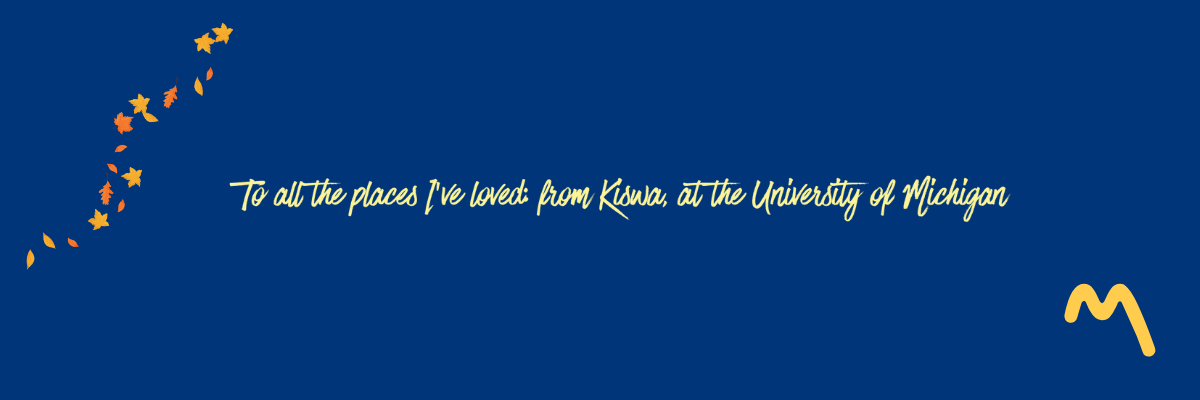In such a diverse country with many beautiful cultures, visibility is important. People feel pride in their cultures, so when they’re recognized, it can be a bridge to acceptance for them. At Niles North, we are lucky to have such a diverse student body and a high percentage of Asian American educators compared to the national average. Alongside this, the many affinity groups at our school create an amazing and inclusive environment for Asian Americans that you can’t really find elsewhere.
Students feel seen when surrounded by peers and adults they can relate to culturally, but outside of a few emails and Instagram posts, it feels like the school could be doing more to celebrate the many Asian cultures present here.
For instance, to celebrate Filipino American History Month in October, Niles North sent out an email with an informational slideshow by Filipino Club’s sponsor, Charlene Taba. It was thrown into the daily newsletter with other flyers promoting bake sales and sports tryout dates. It was much appreciated by those who saw it, but it didn’t have a huge impact.
“Highlighting and showcasing our Filipino (or APIDA) cultures… is about connection,” Taba said. “There is a word in Tagalog (a main language in the Philippines), Kapwa, that explains our culture the best. Kapwa, in literal translation, means ‘neighbor,’ but the spirit of it is the idea of ‘oneness’ among people and caring for others as an extension of ourselves. We are a culture of connection and that is something that doesn’t always translate in the virtual realm.” That goes for anything and anyone. Face-to-face connections – or at least something that we can interact with outside of an email – can be the difference between acknowledgment and acceptance.

For more recognition, Filipino Club requested for Original Pilipino Music to be played during passing periods. The request was granted, but it was set to play during the shortest week of October. It left a lot to be desired, but even these actions can mean a lot for many students.
“Being represented with something as little as hearing Pinoy music in the hallways makes me extremely happy,” junior Jillian Quilban said. “In elementary [school], none of my friends even knew what the Philippines was. I always smile when I hear my language at school.”
These simple actions by the school already have meaningful impacts on the student body. When someone hears a song they only hear at family reunions or phrases they’d only hear at home, it makes them feel welcome. Small things like emails and songs do so much, so it’s obvious we should take it further.
Besides actions by the school, more student-led things such as clubs can create a more personal impact through a sense of community or a place to celebrate specific cultures. Niles North’s Filipino Club is one of these places.
“Club feels like a home to people and is a place where, at the end of the day, they can just have fun and be with people they enjoy being around,” Co-President of the Niles North Filipino Club Ashton Rara said.
Cultural clubs are not only a space to celebrate culture, but to also share it in engaging and meaningful ways. They’re invaluable in a diverse community like ours, and people like Ashton are proud to make an impact.
Asian American students at North have also been working hard to expand by creating new spaces to explore their cultures. Just last year, the Vietnamese Student Association(VSA) was founded last year by graduate Nicholas Pham. You can find VSA every other Wednesday in room 2125, where they welcome anyone with a warm and lively environment. These spaces hold more value than a place to hang out, though, as they’re vital in that “they help members connect with their cultural heritage, language, and history.. [and] can be a platform for raising awareness and promoting positive change,” Pham said.
Groups like VSA, South Asian Student Association (SASA), Filipino, Chinese, Israeli, Korean, and Assyrian Club, are here for these reasons. Still, with only seven Asian-identifying clubs, it’s impossible to recognize the 48 countries and countless cultural groups of a whole continent. For that, we have the Pan-Asian Student Association (PASA).

PASA is the voice that speaks for these underrepresented groups. It is also a collaborative space for the seven Asian clubs at North. Last year, PASA hosted some of the largest events for Asian Americans, such as the Chinese Lunar New Year Celebration or Karaoke Night.
An Instagram post by the official Niles North account uploaded photos of the end-of-year celebration for APIDA Heritage Month in May, but the caption said it was to celebrate “Asian American Heritage Month,” which leaves out the Pacific Islander and Desi-American cultural identities that are otherwise recognized by the school in their emails. Things like these may seem small, but they can make groups feel invisible.
“[The school] does an amazing job of trying to represent different communities and celebrations… However… sometimes other clubs drown out less popular ones, making some cultural clubs less present in our school,” Co-President of PASA, Thea Abang said.
This year, PASA aims to change this through things like activism and collaboration. You’ll find many of the leaders of the Asian cultural clubs at PASA nearly every Friday in room 2060, discussing plans for events and ways to increase representation at school. These past few years have been tremendous for the growth of the Asian-American community at North, and with the successes of last year, PASA aims to keep the ball rolling.
The work is cut out this year for the Asian clubs at North. There’s talk of repeating the success of last year’s PASA events, but they want to do even more. Throughout the Asian-American community here, there is a desire to create bigger and more powerful school-wide events in celebration of Asian culture. Many of the Asian-American teachers at North have expressed the desire to create an Asian mural, similar to the Assyrian or Latinx murals seen around the school. Additionally, APIDA Heritage Month falls on one of the shortest and busiest months of the school year, May. Although there isn’t much to do about the timing, it only means we have to make it count. What about… an assembly?
With Asian Americans being the second-highest racial demographic at our school and the percentage of Asian educators being over 3x the national average, there’s plenty of cause to celebrate. Affinity groups have an impact that stretches far beyond Asian culture, they create a space where people can express their culture with others in a safe and fun environment. With last year’s successes, many feel it’s time to see what’s possible.
The Black Student Union assembly was incredible in terms of impact and awareness, so why not bring it to other cultures? In the end, it’s up to the students, teachers, and the school, to see how far we can really go. Either way, support APIDA groups! Go to clubs, enrich yourself with their culture, and try new foods! It all starts with your impact, so create change, and go see the world.















